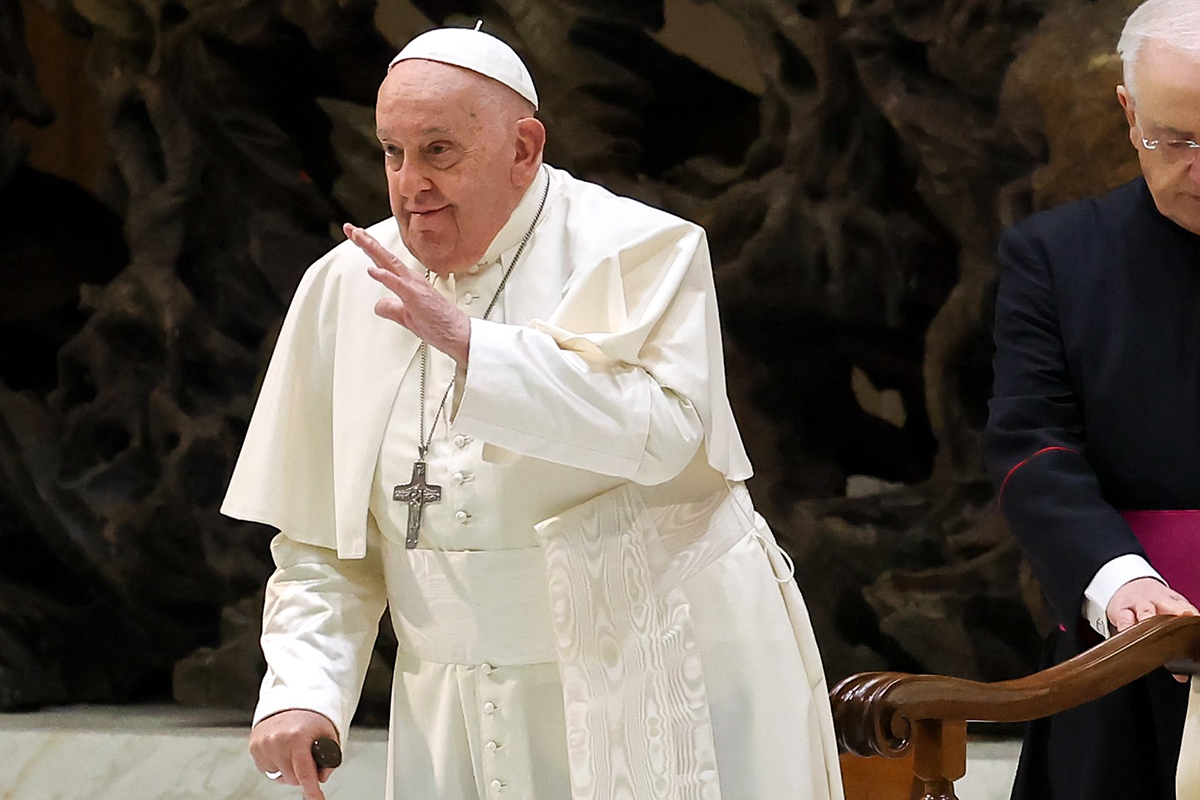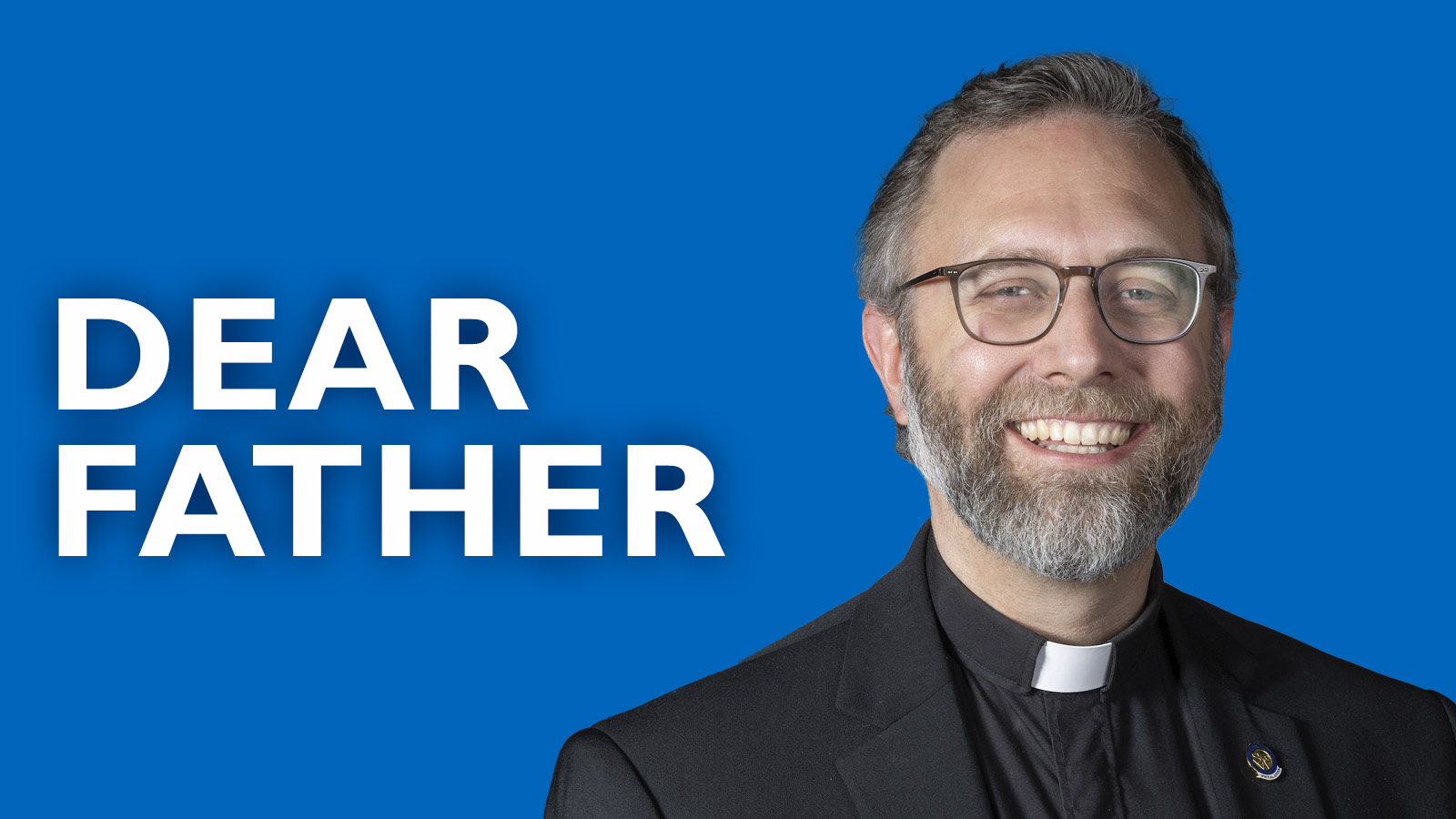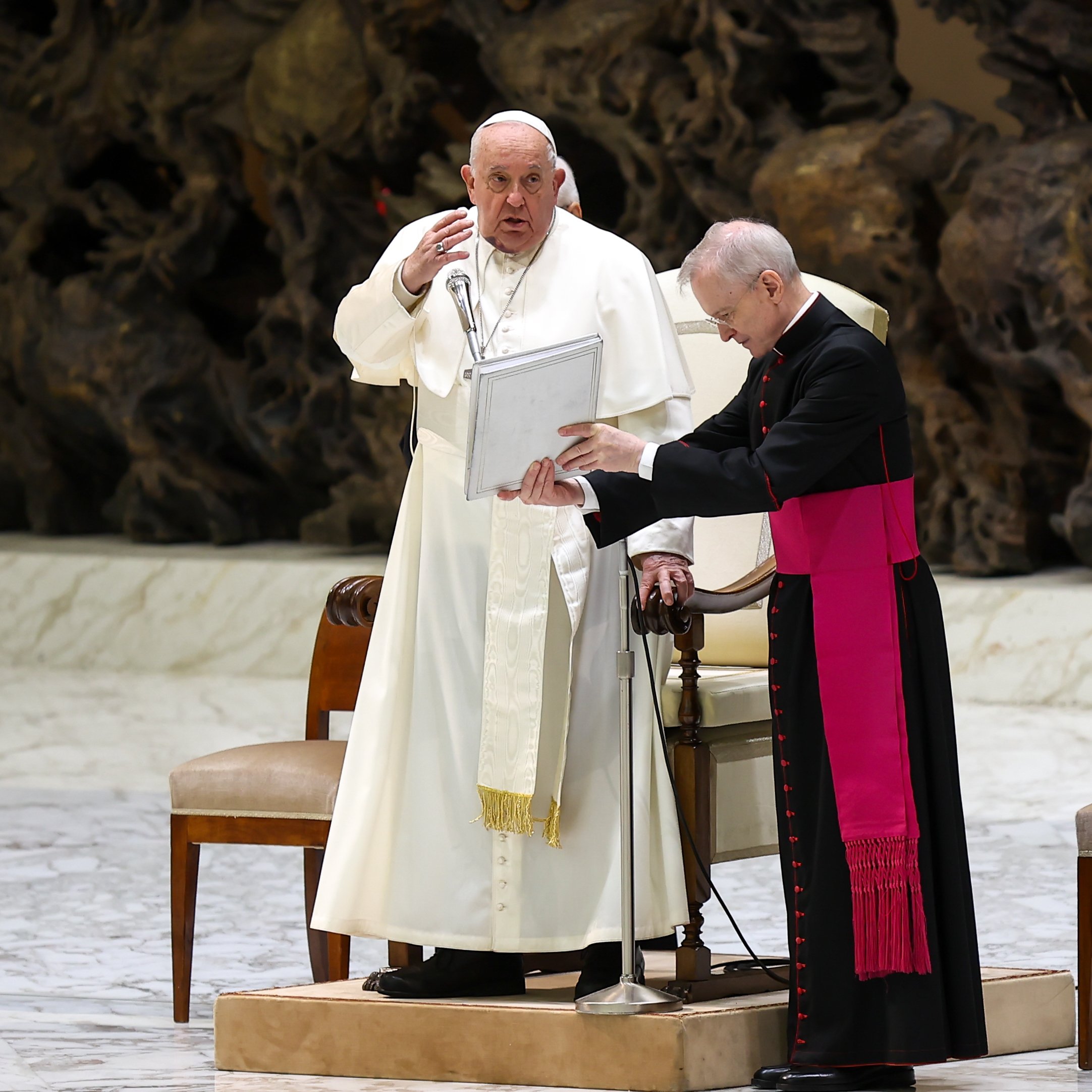BEFORE THE CROSS | Cooperating with God’s pruning allows to bear better fruit
Our sufferings can be united with the sufferings of Christ on the Cross to help redeem the world

I want to mention two things this week.
First: Jesus tells us that the Father “takes away every branch in me that does not bear fruit, and everyone that does He prunes so that it will bear more fruit.”
Notice: It’s not the dead branches that are pruned. The dead branches are simply thrown away. It’s the branches that are alive and fruitful that are pruned. That means less essential things are cut away in order to concentrate the growth in the most important places. That pruning makes the branch more fruitful.
Well, what have we been learning these last two months? Some things have been pruned from our lives by external necessity. But once those external restrictions are lifted, are there things we don’t want to go back to — things that may be good, but are less essential?
God has allowed our lives to be pruned. When the external world returns to some sense of normalcy, staying pruned will require our intentional, deliberate cooperation. Will we rise to that challenge, making the discipline of pruning our own?
Jesus says He chose us and appointed us to go and bear fruit that will remain. We need to cooperate with the Father’s pruning in order to bear the fruit that Jesus intends.
Second: The Church observes the feast of the martyrs Sts. Nereus and Achilleus this week (May 12). On that day St. Augustine offers some important insights into suffering. He says: “The sufferings of Christ are not in Christ alone; yes, but the sufferings of Christ are only in Christ.”
His reasoning, though poetic, sounds odd at first. How can the sufferings of Christ be only in Him, and yet not in Him alone?
St. Augustine’s reasoning is rooted in the Scriptural conviction that, by baptism, we become members of the Body of Christ. Based on that belief, ancient Church tradition distinguished between “the unique Christ” — meaning Jesus, the head of the body alone — and “the whole Christ” — meaning Jesus the head, united with the members of His body.
In light of that ancient understanding, St. Augustine is saying that the sufferings of the unique Christ on Calvary are not the whole story. Rather, the cross becomes the focal point for the sufferings of the whole Christ — His entire body — throughout all history.
That means we don’t have to go it alone. Every one of our sufferings, whether large or small, can be united with the sufferings of Christ on the cross and put to use for the redemption of the world. So, St. Augustine says: “Each one of us in his own measure pays his debt to what may be called this commonwealth of ours. In proportion to our store of strength we contribute, as it were, a tax of suffering.”
That insight is dear to me. It’s part of what my episcopal motto means: “Before the Cross there is no defense.” The cross is the ultimate source of power in the world. But it’s a paradoxical kind of power, isn’t it? It’s not the power the world expects.
Jesus offers us — as members of “the whole Christ” — the chance to join Him in exercising the power of redemptive suffering. But, as with the pruning mentioned before, it requires our cooperation. As we look back on the last two months, do we notice any places we may have missed the invitation? If so let’s look ahead and try to accept the invitation more quickly and completely the next time it comes.






